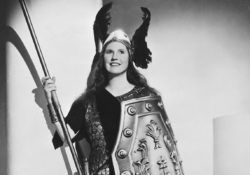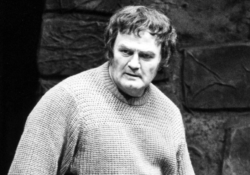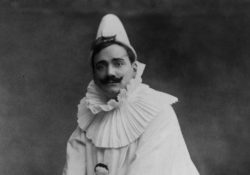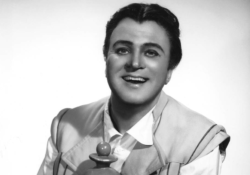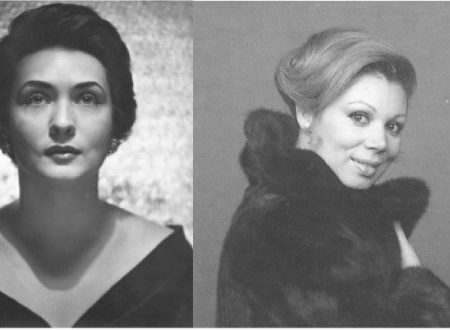Part of Iconic Voices of the Past, a series from Singers on Singing
Above: Paris, France, 1922 | Tito Schipa, lyric tenor of the Chicago Opera Company, performing at a benefit concert given at the Grand Opéra de Paris (Palais Garnier).
(For more information about the Singers on Singing: Iconic Voices of the Past series, please visit the series page.)
List of Singers and Excerpts
Léon Escalaïs– link to the 19th century
ROBERT LE DIABLE, “Sicilienne”
Gerhard Unger (character)
DIE ENTFÜHRUNG AUS DEM SERAIL, “Frisch zum Kampfe”
John McCormack (light lyric)
Charles Marshall, “I Hear You Calling Me”
Tito Schipa (light lyric)
Tosti, “Ideale”
Georgi Vinogradov (light lyric)
MIGNON, “Elle ne croyait pas” (sung in Russian)
Tudor Davies (heavy lyric)
CARMEN, Flower Song (sung in English)
Richard Crooks (heavy lyric)
NAUGHTY MARIETTA, “Ah, sweet mystery of life”
Fritz Wunderlich (heavy lyric)
DIE ZAUBERFLÖTE, “Dies Bildnis”
Nicolai Gedda (heavy lyric)
LES CONTES D’HOFFMANN, “Kleinzach”
Carlo Bergonzi (heavy lyric)
MACBETH, “”Ah, la paterna mano”?
Enrico Caruso (spinto)
Halévy, LA JUIVE, “Rachel, quand du Seigneur”
Georges Thill (spinto)
LES TROYENS, “Inutiles regrets”
Richard Tucker (spinto)
IL TROVATORE, “Ah, sì, ben mio”
Renato Zanelli (dramatic)
OTELLO, “Dio, mi poteviscagliar”
Renato Zanelli (as a baritone)
ZAZÀ,”Zazà, piccolazingara”
Jon Vickers (heroic)
DIE WALKÜRE, “Winterstürme”
James Bowman (counter-tenor)
VIVALDI: Nisi Dominus – Sicuterat in principio, and Amen
Léon Escalaïs
MEYERBEER: ROBERT LE DIABLE, “Sicilienne”
Robert, Duke of Normandy, is the son of a princess whose husband was a devil. In one of his few carefree moments in the opera, he gambles with a group of knights, exuberantly calling on Fortune to guide his hand and hailing gold as one of the earth’s greatest pleasures.
Gerhard Unger
MOZART: DIE ENTFÜHRUNG AUS DEM SERAIL, “Frisch zum Kampfe”
Belmonte arrives at the palace of Pasha Selim, intent on freeing his beloved Konstanze, her maid Blonde, and his own servant Pedrillo, who are all captives. The plan is for Pedrillo to get the fierce overseer Osmin drunk – the two couples can then set sail for home on Belmonte’s ship. Pedrillo knows that, for the plan to work, he’ll need to summon all his courage.“Forward into the fray,” he sings. “Only the faint of heart would be afraid!”
John McCormack (light lyric)
CHARLES MARSHALL: “I Hear You Calling Me”
In Harold Lake’s text, the singer declares to his beloved, “You called me when the moon had veiled her light, before I went from you into the night. I came – do you remember? – back to you for one last kiss beneath the kind stars’ light.”
Tito Schipa (light lyric)
TOSTI: “Ideale”
One of the loveliest of Tosti’s more than 350 songs is “Ideale,” composed in 1882 when the composer was reaching the height of his hugely successful career. Carmelo Errico’s text of this song finds the singer thinking of his beloved – the ideal of the song’s title – whom he has followed everywhere. Now he longs for her to return to him, so that she can smile at him and bring with her a new dawn.
Georgi Vinogradov (light lyric)
THOMAS: MIGNON, “Elle ne croyait pas” (sung in Russian)
The dashing young Wilhelm has fallen in love with the waif-like Mignon, whom he saves from a fire. He and the minstrel, Lothario, bring the seriously ill Mignon to an Italian castle, which Wilhelm plans to buy for Mignon. Distressed by her delirium, he sings in his aria that he longs for the spring – and hisown heart – to restore innocence and happiness to Mignon’s life.
Tudor Davies (heavy lyric)
BIZET: CARMEN, Flower Song (sung in English)
Carmen, a gypsy, encounters Don José, a corporal in the dragoon guards, in Seville’s square and seductively throws him a flower. Having wounded a fellow worker in Seville’s cigarette factory, Carmen is to be escorted to prison by Don José, who has fallen in love with her. He allows her to escape and is sent to prison himself. After his release, he comes to a tavern to see Carmen again. No sooner has she begun dancing for him when he hears trumpets in the distance, calling for retreat. He knows he must leave, but when Carmen bitterly mocks him, he pauses to take her flower out of his jacket. Recalling that he kept it during his weeks in prison, he declares his love for her.
Richard Crooks (heavy lyric)
HERBERT: NAUGHTY MARIETTA, “Ah, sweet mystery of life”
Until the finale of this Victor Herbert operetta, only the soprano heroine, the captivating young Marietta, is heard in this rapturously romantic song. Ever since it was introduced on Broadway in 1910, however, it’s been a favorite of lyric tenors everywhere.
Fritz Wunderlich (heavy lyric)
MOZART: DIE ZAUBERFLÖTE, “Dies Bildnis”
Three ladies who serve the Queen of the Night give Prince Tamino a portrait of the Queen’s daughter, Pamina, who has been abducted by Sarastro. In his aria, Tamino is enraptured by the portrait, wondering if love is what he’s feeling. He hopes to find her, stand before her, and take her in his arms, so she would then be his forever.
Nicolai Gedda (heavy lyric)
OFFENBACH: LES CONTES D’HOFFMANN, “Kleinzach”
In a tavern during the intermission of an opera performance, the poet Hoffmann entertains his friends with the ballad of a misshapen little man named Kleinzach. His mood changes almost instantaneously as Hoffmann becomes distracted, indulging in his own ecstatic romantic reverie. He shakes off the seriousness and returns to the tale of Kleinzach for a concluding verse of the song.
Carlo Bergonzi (heavy lyric)
VERDI: MACBETH, “"Ah, la paterna mano"?
Macduff has just received the devastating news that his wife and children have been killed by Macbeth’s hired assassins. Devastated, he laments in his deeply moving aria that, as a fugitive, he couldn’t be there to shield them from danger.
Enrico Caruso (spinto)
HALÉVY: LA JUIVE, “Rachel, quand du Seigneur”
As an infant, Rachel’s life had been saved by a Jew, Eléazar, who has raised her as his own daughter in his faith. He alone knows her true identity: she’s the daughter of Cardinal de Brogni, who has condemned her for her relationship with the Christian prince Léopold. Alone with his thoughts, Eléazar realizes that revealing who Rachel really is can save her. Since she came into his life, he has devoted himself to her, but he finds himself unable to force her now to change her religion, even if it will mean that her life will be spared.
Georges Thill (spinto)
BERLIOZ: LES TROYENS, “Inutiles regrets”
The Trojan hero Aeneas has enjoyed his time with Queen Dido, but he knows that fate is calling him away. In his monologue, he remembers the death-like pallor in her face when he told her of his responsibility to the gods. He wonders how he will ever endure Dido’s grief, which has prompted a terrible struggle within himself. Finally, however painful it may be, Aeneas resolves to see Dido one last time.
Richard Tucker (spinto)
VERDI: IL TROVATORE, “Ah, sì, ben mio”
In the castle of Castellor where Manrico has brought Leonora, she is frightened of what awaits her beloved, whom she believes may be killed in his fight with Count di Luna’s soldiers. In his cavatina, he assures her that when they’re united in marriage, her love will make him stronger than ever. If destiny wills it that he dies, his last thoughts will be of Leonora and death will seem only the act of preceding her to heaven.
Renato Zanelli (as a dramatic tenor)
VERDI: OTELLO, “Dio, mi poteviscagliar”
Otello is convinced that his wife Desdemona is unfaithful. He sadly laments that he could have patiently endured every possible suffering that God might have imposed on him, but the loss of love has taken away the light that gave him life and joy. He then rouses himself, declaring Desdemona must confess her crime and then die.
Renato Zanelli (as a baritone)
LEONCAVALLO: ZAZÀ,”Zazà, piccolazingara”
Cascart, the music-hall star Zazà’s colleague and former lover, knows that her current lover, Milio, is married. He sympathizes with her: “You believed him to be free,” he says, “and now hope is dead. Now it is you who are the free one!”
Jon Vickers (heroic)
WAGNER: DIE WALKÜRE, “Winterstürme”
Sieglinde, desperately unhappy in her loveless marriage to Hunding, is instantly drawn to Siegmund, who takes shelter in their home. After giving her husband a drink to make him sleep, Sieglinde unburdens herself to her guest. Siegmund opens the door of the hut and reveals that winter storms have given way to spring. In his aria, he blissfully describes its radiance, knowing now that Sieglinde is his long-lost sister and that spring – and love – have reunited them at last.
James Bowman (counter-tenor)
VIVALDI: Nisi Dominus – Sicuterat in principio, and Amen
One of Baroque music’s most exhilarating motets for alto voice, Vivaldi’s Nisi Dominus sets Psalm 127, the opening of which can be translated thus: “Unless the Lord builds the house, the builders labor in vain.” Added to the Psalm is the “Gloria Patri,” from which the text of the motet’s last two movements is taken. One translates those lines as follows: “As it was in the beginning is now, and ever shall be: world without end. Amen.”
